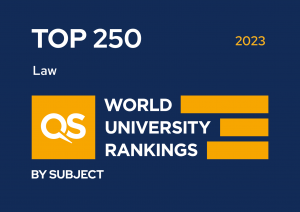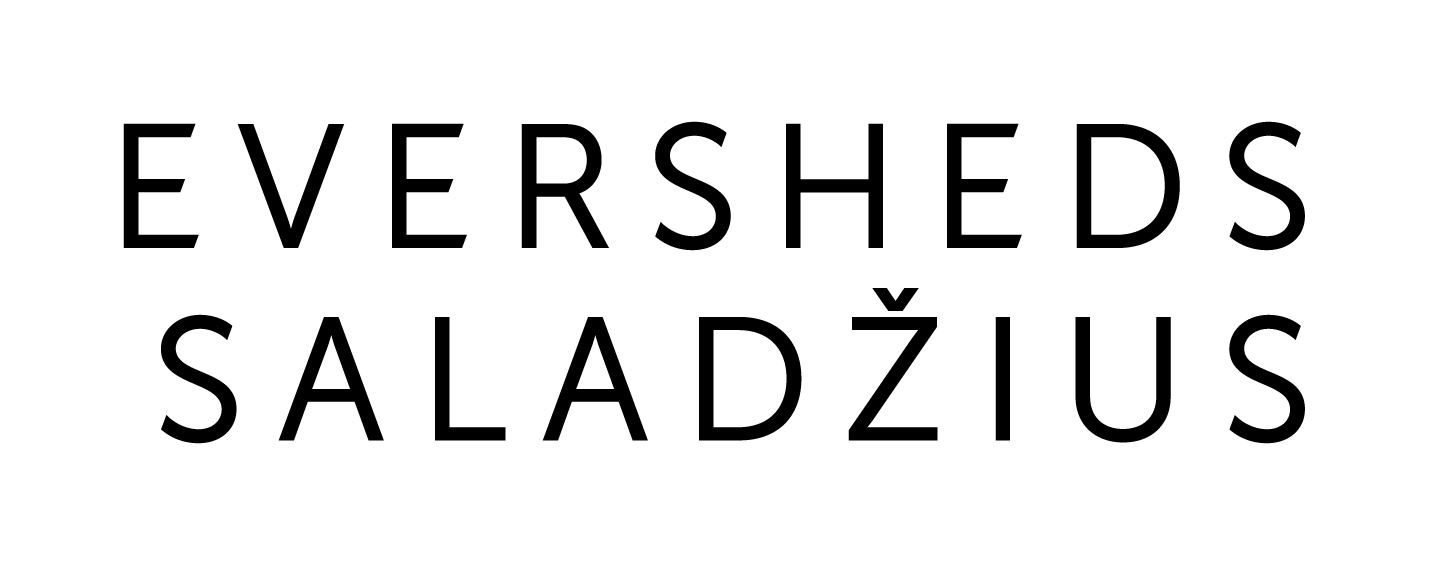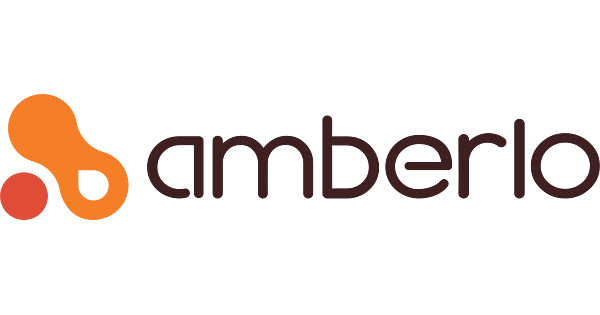| 1. Careers focussed LL.M. Programme |  |
Flexible, one-year LL.M. programme, providing entry points to a wide range of legal technology careers, including in legal practice and in R and D. |
| 2. Delivered by international experts |  |
Delivered by international experts working in the field of technology to ensure that students get the benefit of the latest trends in the market. |
| 3. Flexible, hands-on learning |  |
Immersive and experiential learning, including gamification and practical start-up simulations that require students to prepare and defend a product or a startup idea, all delivered flexibly in the evening and through streamlined modules. |
| 4. Collaboration with international partners |  |
Exposure to and interaction with global partners in the world of legal technology, such as Evershed, Amberlo, Fondia and Saldzius. |
| 5. Global networking opportunities |  |
Affordable international programme, delivered in English, and providing opportunities to collaborate and network with peers from across the globe. |
|
6. Commercial focus |
 |
Very strong focus on technology commercialisation and delivering value to multiple stakeholders. |
| 7. Interdiscplinary programme |  |
Interdisciplinary focus, bringing in significant areas such as data, artificial Intelligence, fintech, regtech, cybertech, gamification, intellectual property, robotics, ethics and legal semantics. |
| 8. Compulsory work placement |  |
Mandatory internship that provides practical learning opportunities in a real-life context and opportunity to acquire valuable skills. |
| 9. Work within innovation zone |  |
Chance to network within the Baltics, at the gateway of the EU, and also globally recognised for up and coming innovation. |
| 10. Study in the EU at the No.1 Ranked Law School in the country |  |
Collaboate with experts and peers through face to face teaching at the Mykolas Romeris University in Lithuania’s capital, Vilnius, a member of many EU and global networks, in the QS World Rankings, and also rated number 1 Law School in Lithuania for law studies. |
Apply now to start your journey on this programme.
STUDY PROGRAMME PLAN
|
Course units |
ECTS credits |
|
1st YEAR |
60 |
|
1 SEMESTER |
30 |
|
Compulsory course units |
24 |
|
Law and Technologies: Challenges and Opportunities |
6 |
|
Regulation of Fintech Industry |
6 |
|
Games and Gamification methods for Law |
6 |
|
Legal Semantic Technologies |
6 |
|
Alternatively elective course units 1 |
6 |
|
Cyber Crime and Forensics |
6 |
|
Privacytech: Privacy, Security and Technology |
6 |
|
2 SEMESTER |
30 |
|
Compulsory course units |
30 |
|
Internship |
9 |
|
Intellectual Property and Modern Technologies |
6 |
|
Artificial Intelligence for Law and Law for Artificial Intelligence |
6 |
|
Robotic Governance |
3 |
|
Final Examination |
6 |
General competences and learning outcomes
- Personal and Social abilities
- Ability to work in an interdisciplinary team of lawyers and technology specialists, to organize and manage work tasks and timing, effectively cooperate with colleagues reconciling opposing interests, objectives and knowledge of legal and technological specialists, to help specialists in the fields of law and informatics to cooperate constructively, to assign and coordinate work tasks;
- Ability to communicate with different audiences, including lawyers and technology specialists, to understand principles related to LegalTech start-up communication, to be able to transfer the specialized knowledge to relevant audiences and select appropriate communication means, platforms and tools;
- Ability to interest both specialists and people with a general profile with legal and technological knowledge and abilities, as well as to communicate that knowledge in an attractive way; to be able to organize, motivate, understand other team members, especially for reforms through LegalTech, and take into account the opinions of various specialists related to technological reforms and to understand the responsibility towards current and potential corporate clients and other people who will be affected by the technological reforms.
Subject specific competences and learning outcomes
- Knowledge and its application
- Ability to apply and adapt the acquired LegalTech knowledge in practice, develop LegalTech idea and create conditions for its commercialization, or to gain the approval of specialists from the technology information, law, business and other fields for further practical development of the idea;
- Ability to develop simple legal technologies or contribute to the development of complex legal technologies.
- Research skills
- Ability to demonstrate well-developed skills of self-learning, to conduct LegalTech specific data search, to select most relevant sources and understand the depth of relevant scientific research, to plan resources and time necessary for implementation of tasks, to identify and manage the potential risks.
- Special abilities
- Ability to advise on issues related to legal aspects of newest technologies, to resolve various LegalTech interdisciplinary issues critically and creatively, including most complex ones, to prepare proposals for resolution of identified legal problems and legal regulation improvements, to select appropriate means and methods for problem solving and make well-grounded conclusions;
- Ability to critically analyze, interpret, compare, and assess legal relations and legal regulation of newest technologies, to make well-grounded proposals for improvement of legal regulation.
Full-Time Studies (in English)
The program follows a modular structure, with classes held on weekdays in the evenings, from 4:15 PM to 9:00 PM, three to four times a week. Students typically study one subject at a time, although sometimes two subjects may overlap.
In exceptional cases, students who are unable to attend classes in person for valid reasons and notify the instructor in advance can passively watch the class being streamed live online, according to the approved schedule.
Exams and practical sessions must be attended in person at the university.
- Choose a study programme
- Fill in the application form at apply.mruni.eu
- Pay the non-refundable application fee (for non-EU citizens – 100 euros, for EU-citizens, MRU alumni, and Ukrainians – 50 euros)
- Receive your application evaluation results
- Confirm your acceptance by paying the first-year tuition fee and 50 euros registration fee (non-refundable)
- Sign the study contract
- Start Temporary Residence Permit application procedure
- Register to studies
Required documents:
- Bachelor degree in Law or equivalent first university degree diploma in Law (3-year study duration minimum). Applicants from other fields of study can also apply with additional conditions*
- Academic Transcripts of each study year
- Document proving English language level
- Motivational letter (please note that the authenticity of the motivation letter will be verified using specialized software, so it should be written without AI assistance)
- Passport copy
*Applicants from other fields of study can apply for the LegalTech LL.M. program if they have at least 3 years of relevant work experience and have completed the LL.M. Preparatory Studies at Mykolas Romeris University. More information about the LL.M. Preparatory Studies can be found here.
Additional educational documents might be required depending on the country of residence.
Provided documents must be in color, have no cut corners (high quality scan).
Notes:
- The minimum 60% of maximum possible GPA is required in order to be considered for admission.
- By submitting the documents applicant agrees for one’s information to be shared with other institutions that the University might refer to while processing the academic verification.
- Applicants might be asked to participate in additional knowledge evaluation.
Required level – B2
Assessments of English language proficiency certificates equivalent to level B2:
- TOEFL IBT 72-94
- IELTS 5.5-6.5
- PTE score 59-75
- DUOLINGO 100-125
If you do not have a certificate proving your English language proficiency level, you can take the University Online English language level test. You will be able to choose this option while filling in the application. The test is free of charge.
Certificate is not required if your native language is English or if your previous studies were conducted fully in English language.
- If the original educational documents/transcripts are in English, Lithuanian or Russian with an apostille (if required) on the scanned original, no translation needed.
- If original educational documents/transcripts are not in English, Lithuanian or Russian languages, then they have to be supplemented with an official translation.
- The official translation has to be confirmed with the sworn translator’s signature or official notarization.
- Accepted students shall present their original educational documents/transcripts to the International Office upon arrival to begin their studies.
Country Specific Requirements can be found here.
Recognition of Foreign Qualifications
- The evaluation and recognition of prior qualifications is a part of Mykolas Romeris University (MRU) admissions process.
- By submitting the online application you confirm that the documents are legitimate and that MRU can verify the authenticity of the documents by contacting its issuing authority and national ENIC/NARIC centre.
- Documents uploaded must be in good condition and in full colour. Documents issued in languages other than English, Russian, or Lithuanian must be accompanied with an official translation into English or Lithuanian.
- Before you apply make sure that you have a complete documentation package and that your qualifications are giving access to higher education according to the study programme level you are applying for at the MRU.
Recognition Criteria
- The purpose of an assessment is to compare a foreign qualification with a similar level qualification awarded in Lithuania according to quality, profile, content, workloads and learning outcomes.
- Your qualification will be assessed according to specific requirements for the programme you are applying for and whether your academic results are sufficient for studies at the MRU.
Right to Appeal
Recognition decisions can be appealed against to the Academic Recognition of Foreign Qualifications Concerning Higher Education Appeal Committee under the Lithuanian Ministry of Education and Science.
All appeals with supporting documents must be submitted to:
Centre for Quality Assessment in Higher Education
Ph.: +37052104778
Email: recognition@skvc.lt
Address: SKVC, A. Goštauto st. 12, LT-01108, Vilnius, Lithuania
The procedure of evaluation and recognition of academic qualifications
Application fee (non-refundable):
- for Non-EU citizens – €100
- for EU citizens, MRU Alumni, and Ukrainians – €50
Registration fee (non-refundable):
- €50
Tuition fee (EU/Non-EU citizens) per 1 academic year: €3454 per one academic year (2025-2026).
Payment information will be provided in the invoices issued in your online application form.
Student continues to pay the same tuition fee which was implied at the time of the admission.
E-mail: study@mruni.eu
Phone: +370 5 271 4700
WhatsApp: +370 6 564 6682
Office: I-122



